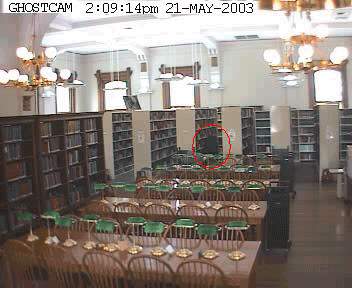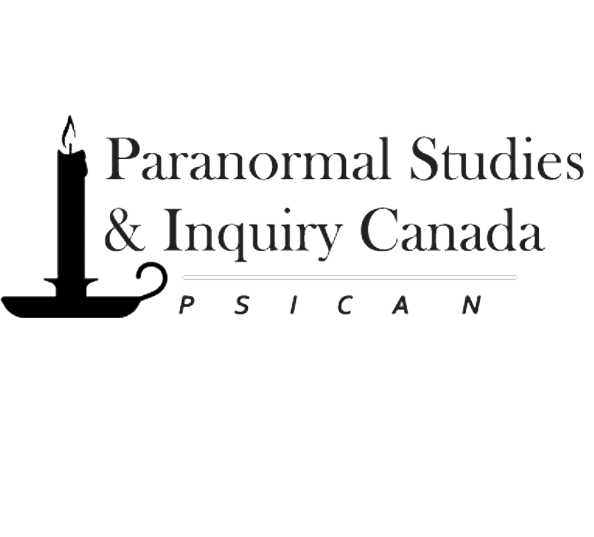Canadian historian Chris Laursen offers some tips on how to find excellent books on the paranormal.
Finding the best information on paranormal research
It is essential for anyone interested in paranormal research read as much as they can to build knowledge that will be practical in actual investigations. Personal experiences, field work, anecdotes and so forth will only offer you a very small piece of the full range of exploration that has been done on the paranormal. There is amazing, ongoing research on things paranormal, and the body of work published (especially since the creation of the Society for Psychical Research in London 125 years ago) is mind blowing.
I always offer suggestions for further reading on my column, but how do you find these books? Many of them are not available at the majority of bookstores, and it may be challenging to find them at most public libraries. I have stepped into libraries that have only a handful of books on paranormal topics, and not very good ones at that, so libraries with an interlibrary loan system are your best bet to find good reading.
Although you will find some excellent new or popular mainstream books at a large bookstore or public library, such as Deborah Blum’s Ghost Hunters: William James and the Search for Scientific Proof of Life After Death, Will Storr vs. The Supernatural or Gary Schwartz’s books on survival after death research, you will be hard pressed to find books that are put out by independent publishers, were published years ago or, as commonly happens, have gone out of print.
Where are the best places to browse for a good selection of paranormal books? Your local independent used bookstore is likely a good source for older books. Not only are you likely to find some classic tomes of paranormal research, the prices are likely to be quite reasonable. It’s pure joy to search through the shelves of local used bookstores to see what treasures may have arrived in, especially if you live in a bigger city. In downtown Toronto, for example, you can find a good floor-to-ceiling shelf full of books on these topics at places like Eliot’s Bookstore (572 Yonge Street), Seekers (509 Bloor Street West), The Recycled Book Shop (162 McCaul Street), ABC Book Store (662 Yonge Street) and the large BMV stores which mostly have titles published in the past decade (on Bloor west of Spadina, or Yonge north of Eglinton). Just a few examples! I have really struck gold in smaller cities and towns as well, for example Fremont Books (240 St. Paul St.) in St. Catharines, Ontario, which has a surprisingly massive collection of vintage titles from the 60s and 70s. Most communities still have used book shops, and it is very much worth your time to go in, browse and support these businesses, many of which are sadly disappearing. Many of these shops will have a paranormal, new age or occult section, as they are often called. Even the smallest collection can yield some great books for you to enjoy!
So I’ve come across a book that looks interesting, but I’m not sure if it’s a good resource for research. Does it have a bibliography? A bibliography is a list of the sources (e.g. other books, journal articles, etc.) that usually appears in the back of the book, often before the index. On occasion, it is included after each chapter, or sources will be referenced in footnotes on individual pages. Any good book should list its sources, including the name of the author(s), book, publisher and year. It will likely also include articles that have been published in addition to books, for example in the Journal of the Society for Psychical Research (JSPR). These sources will lead you to other books you’ll be interested in reading, as well. I would say that many of the books in my collection have been discovered through bibliographies.
Although there are exceptions, books that lack a bibliography may not be best suited to finding reliable information on paranormal topics. Unless the book is a personal account, for example of a haunting or alien abduction, it should include a bibliography. Not citing the sources where the author(s) get information (because all authors do get their information from somewhere) is questionable. Personal accounts, however, can be treated as primary (first-hand) sources in your research. The question then is… is this person giving an honest account? That, in itself, is a whole other topic for discussion.

Some libraries and bookstores have a reputation for being haunted. The Willard Library in Evansville, Indiana, for example, has an online ghost cam that allows people to see if they can capture images of the apparitions that browse their books. (Image: about.com)
And what about when I’m looking for specific books? Although I find many random treasures in used book shops, books have mostly found their way into my personal collection by purchasing them online. It’s helpful when I am looking for specific titles.
Several websites provide an online network for independent booksellers around the world. I have found some really wonderful volumes from countries like England and Australia that I doubt I would ever find from North American booksellers simply because they were never distributed on this continent.
My personal favourite websites for finding books in and out of print include alibris.com, ebay.ca, amazon.ca (and its subsidiaries in other countries), and indigo.ca. (The .ca is the Canadian version of these sites, and they all have .com sites usually based out of the United States; many countries have their own national version of these websites. Sometimes it is worth seeing if rarer books are available on other country’s websites because the list of books for sale differs from country to country.) Alibris and eBay in particular have independent booksellers networked through their search engines. eBay predominantly lists individual people selling their own books.
Then it’s up to you to find the right version of the book for your own purposes, whether you just want to be able to read the text and don’t mind a copy with highlighting or notes scribbled in it, or if you seek high quality antiquarian or mint condition books.
Again, the benefit of ordering online (as with used bookstores) is that you can often find bargains and the shipping rates are generally reasonable. Some even offer free domestic shipping depending on how much you spend in an order. For the budget conscious, many of these websites offer significant discounts from the price you would pay at a new bookstore. Always be sure to spend a bit of time browsing these different sites and sellers for the price and quality of book you are happiest with.
But I’d like to encourage those of you who wish to keep your local independent book dealers alive to order the books directly through them. They often can order in the books for you just as quickly as if you order them online, you pay the cover price (you really shouldn’t be paying more unless you live in a remote community, in which case shipping is taken into consideration) and you keep a wonderful tradition of bookselling going in the process. There is, after all, nothing quite like wandering the aisles of any bookstore, new or used, and finding the wonderful treasures that add great value to understanding the paranormal experience.
Further reading
Toronto Ghosts’ Recommended Books list.
A carefully considered list of book retailers around the world focusing on speculative fiction, which can often lead you to paranormal non-fiction.
Harry Price Library of Magical Literature


